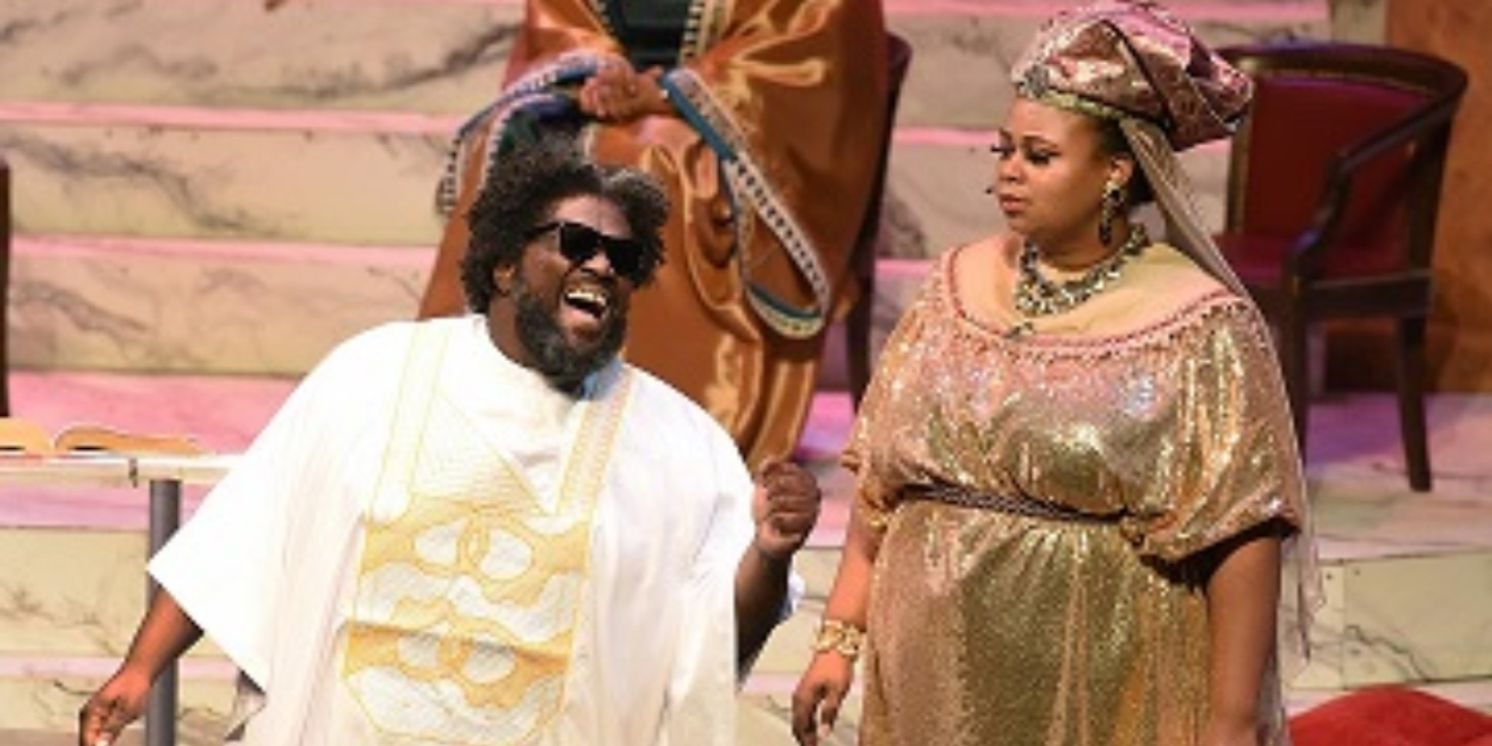Review: THE GOSPEL AT COLONUS at Black Theatre Troupe
The production runs through November 12th at Tempe Center for the Arts in Tempe, AZ.

Black Theatre Troupe’s executive director, David Hemphill, continues to push the envelope in promoting and presenting plays that speak to, illuminate, and elevate the African-American experience and culture. With his direction of THE GOSPEL AT COLONUS, he has delivered a masterful and spellbinding revival of Lee Breuer’s famous and imaginative adaptation of Sophocles’s tragedy, Oedipus at Colonus. Heightened by Bob Telson’s soul-stirring gospel-style music (and 15 hymns), the play reimagines and resets the story in a modern African-American church with all the verve and spiritual energy of a revival.
In reimagining the ancient Greek tragedy, Breuer framed the age-old question of fate versus free will in a modern context. To appreciate the adaptation, and for the sake of context, let us review the original narrative. So, instead of sending you to the encyclopedia of your choice, here’s a recap:
The story of Oedipus is one element of a trilogy that chronicles the fate of Thebes, the seat of King Oedipus’s rule, that was cursed because of his transgressions.
The trilogy, known as either the Oedipus Cycle or the Theban Plays, includes Oedipus Rex, Oedipus at Colonus, and Antigone.
In Oedipus Rex, the king discovers that the terrible plague that has engulfed Thebes is punishment for his murder of the previous king, his father, Laius, and his marriage to his mother, Jocasta. Deep in guilt, Oedipus blinds himself.
It is in the second play, Oedipus at Colonus, that Sophocles deals with the final days of Oedipus's life. After years of wandering in exile, Oedipus arrives in the sacred grove of the Eumenides at Colonus, near Athens. His presence there leads to a power struggle between Athens and Thebes over his protection, since both cities believe that his presence will bring them favor with the gods.
The play ends with Oedipus's peaceful death, and his burial place becomes a source of blessing for Athens.
(The third play shifts its focus to Oedipus's daughter, Antigone, and the civil war in which her brothers, Eteocles and Polynices, kill each other.)
At the core of the tragedy, however, is Oedipus’s struggle with the question as to whether his actions (killing his father and marrying his mother), as foreseen by the Delphic Oracle, are irreversibly predetermined or whether he has the power to define his destiny.
In THE GOSPEL AT COLONUS, Oedipus becomes a marginalized, older man who has suffered greatly and is seeking redemption and solace. In his portrayal of the blind king, Trevelle McElwee-Chappell brings depth and authenticity to the role, accentuated by a movingly robust voice, loaded with intensity and emotion.
As the play opens, the Preacher (Ken Love), proclaims, “Welcome, brothers and sisters. I take as my text this evening the Book of Oedipus.” Thus, does Greek mythology become a Sunday sermon.
In the course of his reflections on his fate, Oedipus interacts with his daughters Antigone (Rico Burton) and Ismene (Tyra Yvette); his traitorous son, Polyneices (Rodney Rayford: and Theseus, the king of Colonus (John Pene). The audience (better yet, the congregation) is guided through the sequences by periodic narration from choir members.
In the tradition of an African-American Pentecostal service, the production is a soaring musical experience, heightened by the resounding and emotionally powerful performance of the choir, conducted by Herman Colter, and the nine-member band, led by the show’s music director and pianist, Brenda Hankins.
Sarah Harris’s set design transforms the stage into an imaginative replica of a church setting that is accented by Kody Hernandez’s brilliant lighting and Derek Stevenson’s sound management.
Joshua N. Walker deserves a medal for bestowing upon this marvelous cast a lavish wardrobe that features African-inspired styles and patterns befitting the status of the characters.
This production is made truly exceptional by virtue of a seamless blend of standout vocal performances and high-level production quality.
Bottom line: Black Theatre Troupe’s production and David Hemphill’s inspired direction lift THE GOSPEL AT COLONUS to grand heights, aloft with emotional impact, a message about the timeless quest for redemption, and the profound ability of gospel music to elevate the human spirit.
THE GOSPEL AT COLONUS runs through November 12th at Tempe Center for the Arts in Tempe, AZ.
Black Theatre Troupe ~ https://www.blacktheatretroupe.org/ ~ Box Office: 602-258-8128
Venue: Tempe Center for the Arts, 700 W. Rio Salado Parkway, Tempe, AZ ~ 480-350-2822 ~ https://www.tempecenterforthearts.com/
Photo credit: Durant Communications
Reader Reviews
Videos

